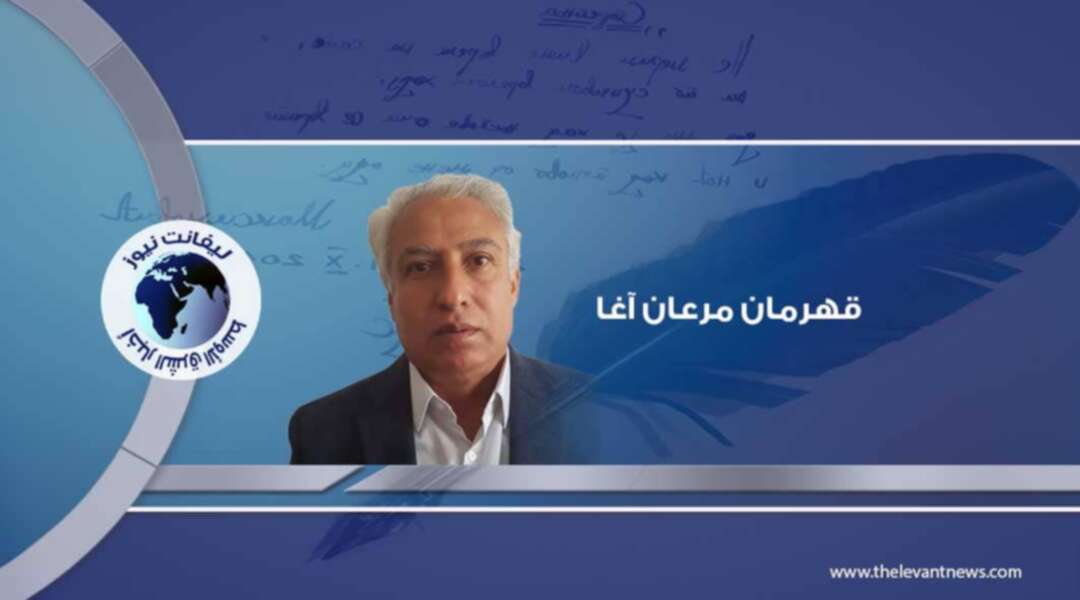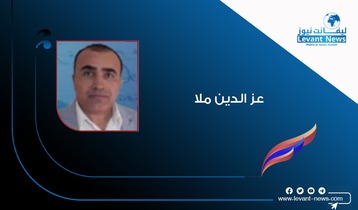-
Turkey - One Eye on Mosul and One Eye on Aleppo

Mosul is located at latitude 36.35, while Aleppo's coordinates are 36.20 concerning the southern Turkish political border. A glance at the map shows that they lie on a theoretical straight line. Turkey considers these areas its vital space since its formation as a state of contention regarding geography and demographics. It justifies its actions by claiming the need to protect its national security and the necessity of establishing a safe zone for itself. However, in reality, it has effectively governed these regions and openly admits to having severed the Kurdish corridor toward the Mediterranean Sea, overlooking the warm waters from the citadel of Sultan Al-Nasir Salah al-Din al-Ayyubi atop the mountain.
**Turkey's Eye on Mosul:**
Since the fall of the Ottoman Empire and the subsequent distribution of its territories according to the (Sevres Treaty/1920), which deprived the Kurdish people of their rights, culminating in the (Lausanne Treaty/1923) and the establishment of Kemalist Turkey (the Republic of Turkey) with its current political borders, the issue of Mosul has been part of its persuasion tactics with England and France, which were mandated over Syria and Iraq. After the detachment of the (Iskenderun Province - Hatay) and the last border demarcation with Syria in 1937, Turkey's other eye fell on Aleppo.
Thus, when ISIS militants captured Mosul on June 10, 2014, the Iraqis were taken aback by the size of the Turkish consulate in the city and the number of its personnel, given the logistical connection between both sides. The establishment of the Turkish military base in Bashiqa (Zilkan base) nearby was merely an encroaching intervention beyond its borders, justifying its alleged historical right in Mosul and its surroundings. Notably, ISIS never approached this base, neither closely nor from afar.
**Turkey's Eye on Aleppo:**
On the other hand, when the Russian bombardment and siege intensified on western Aleppo, and since Turkey was completely subjected to Russian dictates following the downing of the Russian Sukhoi 24 airplane on November 24, 2015, negotiations began between both sides at the expense of Syrian blood. Consequently, western Aleppo fell, and the regime and its supporting militias seized most areas of Aleppo and its countryside in December 2016. This was followed by mutual benefits in the Astana rounds (2017 edition/1 - 2024 edition/24). Concurrently with U.S. President Trump's term, Turkey managed to resolve its vision of Aleppo from afar by occupying the Kurdish Afrin region (Spring 2018) and continuing with the secret occupation of Ras al-Ain and Tal Abyad (2019). We found ourselves face-to-face with shifting terrains directly affecting the Kurdish presence in the natural and demographic geography of Syria.
As is common, the proof is in the outcomes. Since the Russian invasion of Ukraine, Turkey has managed to act pragmatically in most directions despite the economic and political crises (2016 coup) it faced. Despite American and European sanctions, its airports and ports became platforms to circumvent international sanctions against both Russia and Iran. Finally, despite the Turkish president’s pleas to meet the regime's leader, Turkey managed to tilt the balance in its favor by leveraging the changes in the region after October 7, 2024, following the war in Gaza and Lebanon.
Turkey's reputation has sunk to a new low concerning the Syrian opposition in the areas controlled by Hay’at Tahrir al-Sham (formerly al-Nusra) in Idlib province, due to the Russian and regime aerial bombardment throughout the Astana process discussions. Turkish army positions in the so-called de-escalation zones have faced humiliation due to regime attacks while remaining guardians to prevent clashes. It seems that Hay’at Tahrir al-Sham has transcended Turkish dictates and executed its threat to invade regime-controlled areas at an unagreed-upon timing. There is no doubt that Turkey, with its army, intelligence, military and civilian institutions, and its mercenaries from the Syrian National Army loyal to the Syrian coalition, completely holds the file in northern Syria. However, this does not equate to some factions feeling liberated from their grasp.
The causes of the systemic collapse of the regime and its allies are known: the situation in Iran, Gaza, and Lebanon, as well as Russia's weakness due to the war in Ukraine. U.S. President Biden's statement following the Russian missile attack on Ukraine emphasized that aiding Ukraine has become more urgent. Therefore, the Americans and Europeans saw an opportunity to weaken Moscow in Syria, holding the regime and its allies accountable for delaying a political solution to the Syrian crisis while procrastinating more than the regime itself regarding its existence.
I believe the return of refugees and displaced persons, whether from Turkey or within Syria, will exacerbate the crises due to the collapse of infrastructure in most Syrian cities and rural areas.
Ghahraman Maraan Agha
You May Also Like
Popular Posts
Caricature
BENEFIT Sponsors BuildHer...
- April 23, 2025
BENEFIT, the Kingdom’s innovator and leading company in Fintech and electronic financial transactions service, has sponsored the BuildHer CityHack 2025 Hackathon, a two-day event spearheaded by the College of Engineering and Technology at the Royal University for Women (RUW).
Aimed at secondary school students, the event brought together a distinguished group of academic professionals and technology experts to mentor and inspire young participants.
More than 100 high school students from across the Kingdom of Bahrain took part in the hackathon, which featured an intensive programme of training workshops and hands-on sessions. These activities were tailored to enhance participants’ critical thinking, collaborative problem-solving, and team-building capabilities, while also encouraging the development of practical and sustainable solutions to contemporary challenges using modern technological tools.
BENEFIT’s Chief Executive Mr. Abdulwahed AlJanahi, commented: “Our support for this educational hackathon reflects our long-term strategic vision to nurture the talents of emerging national youth and empower the next generation of accomplished female leaders in technology. By fostering creativity and innovation, we aim to contribute meaningfully to Bahrain’s comprehensive development goals and align with the aspirations outlined in the Kingdom’s Vision 2030—an ambition in which BENEFIT plays a central role.”
Professor Riyadh Yousif Hamzah, President of the Royal University for Women, commented: “This initiative reflects our commitment to advancing women in STEM fields. We're cultivating a generation of creative, solution-driven female leaders who will drive national development. Our partnership with BENEFIT exemplifies the powerful synergy between academia and private sector in supporting educational innovation.”
Hanan Abdulla Hasan, Senior Manager, PR & Communication at BENEFIT, said: “We are honoured to collaborate with RUW in supporting this remarkable technology-focused event. It highlights our commitment to social responsibility, and our ongoing efforts to enhance the digital and innovation capabilities of young Bahraini women and foster their ability to harness technological tools in the service of a smarter, more sustainable future.”
For his part, Dr. Humam ElAgha, Acting Dean of the College of Engineering and Technology at the University, said: “BuildHer CityHack 2025 embodies our hands-on approach to education. By tackling real-world problems through creative thinking and sustainable solutions, we're preparing women to thrive in the knowledge economy – a cornerstone of the University's vision.”
opinion
Report
ads
Newsletter
Subscribe to our mailing list to get the new updates!






















